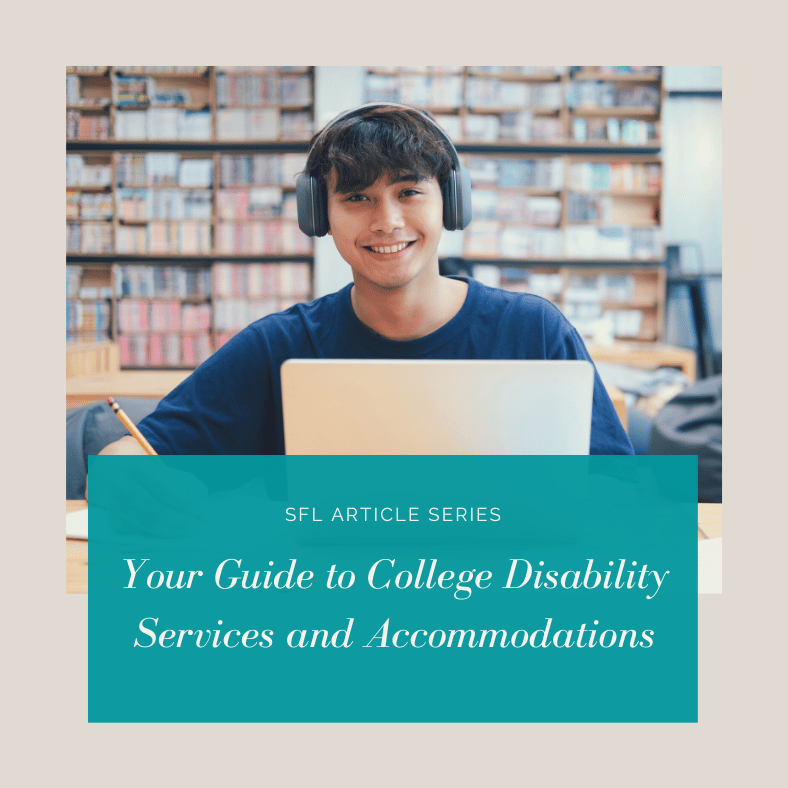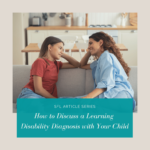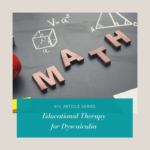No products in the cart.

College Disability Services and Accommodations can be difficult to navigate. And although entering college is an exciting time of intellectual growth, personal independence, and community engagement, for students with learning disabilities, this new chapter can bring additional challenges. This article provides a simplified guide to college disability services and accommodations, aiming to inform and empower students and their parents.
Unveiling the Support System
- Disability Services Office (DSO): This is your central hub! Locate your college’s designated office. This team provides support, accommodations, and guidance specifically tailored for students with disabilities.
- Understanding Your Rights: Familiarize yourself with the Americans with Disabilities Act (ADA) and Section 504 of the Rehabilitation Act. These federal laws ensure equal access and prohibit discrimination based on disability.
- Documentation is Key: Gather documentation of your disability from healthcare professionals. This evidence helps the disability services office understand your needs and determine appropriate accommodations.
Building Your Accommodations
- Open Communication: Schedule a meeting with a disability services advisor. Discuss your disability, academic needs, and desired accommodations. Be specific and transparent about your challenges.
- Tailored Support: Collaborate with the advisor to develop personalized accommodations such as extended test times, note-taking assistance, alternative assignments, or specialized technology.
- Flexibility is Key: Remember, accommodations can be adjusted throughout the semester based on your evolving needs. Don’t hesitate to communicate any changes or challenges you encounter.
Conquering Academic Success
- Utilize Your Accommodations: Proactively request your approved accommodations in each class. Explain them to your professors and ensure smooth implementation.
- Connect with Professors: Don’t shy away from building rapport with your instructors. Discuss your disability upfront and clarify any questions regarding accommodations. Open communication fosters understanding and support.
- Advocate for Yourself: Develop self-advocacy skills. Learn to communicate your needs effectively and confidently. Remember, you are your best advocate for academic success.
How Parents Can Support
- Open Communication: Foster a safe space for open and honest conversations with your child about their disability and campus experience. Listen without judgment and offer unwavering support.
- Know Your Role: Encourage your child to take ownership of their disability services journey. Guide them, but empower them to navigate the process independently and advocate for themselves.
- Resources at Your Fingertips: Familiarize yourself with your college’s disability services offerings and campus support systems. You can be a valuable resource for information and encouragement.
Accessing college disability services and accommodations is not a hurdle, but a bridge to academic success and personal growth. By understanding your rights, utilizing resources, and advocating for yourself, you can unlock a world of learning and opportunity in this exciting new chapter of your life. Embrace the journey, celebrate your milestones, and remember, you are not alone!
Learn more about how we coach students to navigate college disability services and accommodations in our summer course, Beyond High School.
Written by BJ McIntyre, M.A Education
Related Articles
Looking for Academic Support and other Educational Services?
You can schedule a free initial consultation to learn more about our services. We will listen to your concerns, answer any questions, learn about the student’s needs, and help guide you through our new student intake process.






